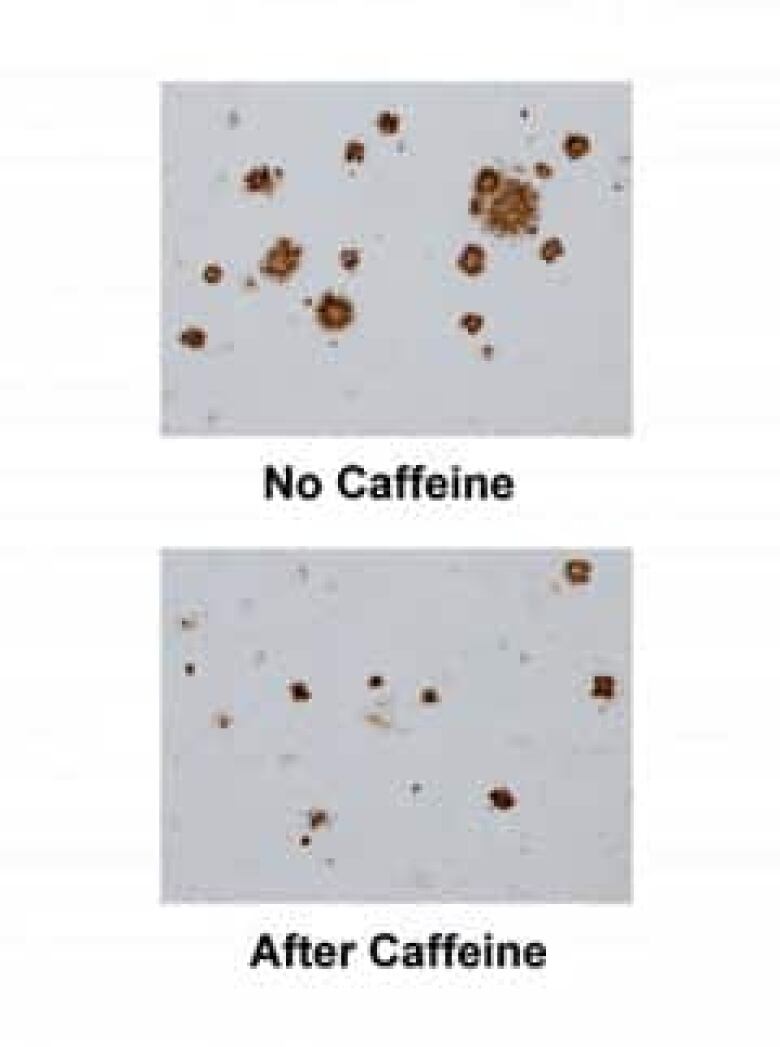Caffeine may ease or reverse Alzheimer's: study
Mice with disease perform much better on memory tests if given caffeine

They came to that conclusion aftercompleting a study that tested the effects of caffeine on mice that had Alzheimer's disease.
Thestudy, published Sunday in the online version of Journal of Alzheimer's Disease,tested 55 micethat had been genetically programmed to develop Alzheimer's disease.
The researchersconducted behavioural tests onthe mice when they were about 18 to 19 months old about 70 years in human age. That's when the mice began showing symptoms of Alzheimer's, notably memory loss.
Half of the mice were given caffeine in their water while the other half the control group drank unadulterated water. The caffeine dose is equivalent to a human consuming around 500 milligrams, or five eight-ounce cups of coffee.
All the mice were tested two months later.Those that were given the caffeine performed much better on memory and thinking tests than the control group. The memories of those caffeinated mice were comparable to mice without dementia, the researchers said.

Caffeine may suppress changes in the brain that lead to an overproduction of beta amyloid, the researchers said.
"The new findings provide evidence that caffeine could be a viable 'treatment' for established Alzheimer's disease, and not simply a protective strategy," said lead author Gary Arendash, neuroscientist with the Florida Alzheimer's Disease Research Center.
"That's important, because caffeine is a safe drug for most people, it easily enters the brain, and it appears to directly affect the disease process," Arendash said in a release.But hecautioned that pregnant women or those with high blood pressure should limit their caffeine intake.
The study also found that mice without symptoms of Alzheimer's didn't perform any better on memory or thinking tests when given caffeine.
"This suggests that caffeine will not increase memory performance above normal levels," said Arendash."Rather, it appears to benefit those destined to develop Alzheimer's disease."
The researchers say more research needs to be conducted onAlzheimer's patients to determine how effective caffeine is on human sufferers.












_(720p).jpg)


 OFFICIAL HD MUSIC VIDEO.jpg)
.jpg)



























































































